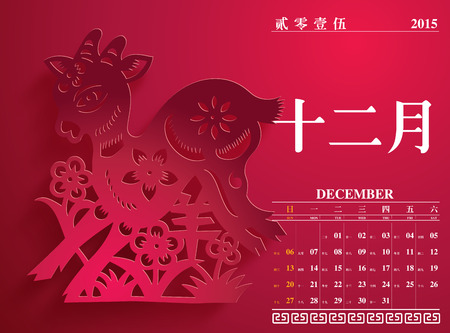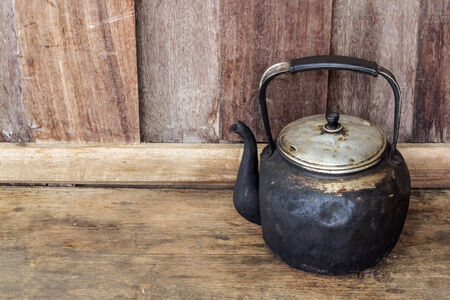Introduction to Feng Shui in the UK Context
Feng Shui, an ancient Chinese practice centred around harmonising living spaces with natural energies, has steadily gained popularity in British households. Rooted in the belief that spatial arrangement influences wellbeing, Feng Shui provides practical guidelines for enhancing comfort, prosperity, and balance at home. While traditional Feng Shui principles emphasise elements such as the orientation of rooms and the strategic placement of lucky charms, adapting these concepts to British homes requires a nuanced approach. UK architecture, characterised by terraced houses, Victorian builds, or modern flats, often differs from East Asian layouts both in structure and use of space. Moreover, cultural values in Britain—such as privacy, minimalism, and practicality—can shape how Feng Shui is interpreted and implemented. Nevertheless, the adaptable nature of Feng Shui means its core ideas can be woven seamlessly into the British context, offering homeowners simple yet effective ways to create positive energy and enhance daily life through mindful design choices.
Living Room Charms: Creating a Welcoming Space
The living room is the heart of most British households—a communal space for relaxation, conversation, and hospitality. In Feng Shui, this area holds significant influence over the home’s energy flow, making it essential to curate a harmonious and inviting atmosphere. While traditional Feng Shui items such as crystal balls or wealth vases are popular in Asian contexts, British homes can integrate lucky charms using more familiar objects without sacrificing authenticity.
Recommended Charms for British Living Rooms
When selecting lucky charms for your living room, consider both their symbolism and their fit with local tastes. Here are some practical options:
| Feng Shui Principle | Suggested Charm | Placement Tips |
|---|---|---|
| Harmony & Balance | Candles (preferably beeswax or soy) | Arrange in pairs on a mantlepiece or coffee table to promote unity and warmth. |
| Prosperity & Abundance | Bowl of fresh fruit (apples, oranges) | Place on a central table to attract health and positive energy; regularly refresh the contents. |
| Protection & Good Luck | Ceramic or brass horseshoe ornament | Display above the main entrance door to the living room, open end facing upwards. |
| Calm & Tranquillity | Houseplants (such as peace lily or English ivy) | Position near windows to improve air quality and encourage gentle chi flow. |
| Positive Relationships | Framed family photos in wooden frames | Group on a sideboard or wall to enhance familial bonds and shared memories. |
Integrating Charms into a British Setting
The key is subtlety—lucky charms should blend seamlessly with your décor rather than stand out as foreign elements. For example, a well-polished antique mirror not only reflects light (a classic Feng Shui technique) but also fits naturally within many UK interiors. Similarly, incorporating tartan cushions or throws can symbolise stability and tradition while contributing to a cosy ambience.
Cultural Sensitivity and Practicality
Avoid cluttering the room with too many symbols; each item should have purpose and intention. It is also important to consider the preferences of all household members when introducing new items. By thoughtfully selecting familiar objects with symbolic meaning, you can honour both Feng Shui principles and British cultural sensibilities, creating a welcoming space that feels both lucky and authentically yours.

3. Bedroom Charms: Enhancing Rest and Harmony
Creating a restful and harmonious bedroom environment is essential for wellbeing, especially in the context of British homes where space and layout may vary widely. Feng Shui emphasises the importance of balanced energy (Qi) to promote restorative sleep and emotional harmony. When selecting lucky charms for the bedroom, it is crucial to prioritise objects that foster calmness and positive vibes while avoiding those that might introduce excessive stimulation.
Choosing Suitable Charms
Opt for gentle, natural materials such as jade, rose quartz, or amethyst. These stones are traditionally believed to encourage tranquillity and harmonious relationships. Soft textiles—such as a silk cushion embroidered with auspicious symbols—can also subtly enhance the room’s energy without clashing with typical British décor. Avoid sharp or overly vibrant ornaments; instead, select charms with rounded edges and soothing colours.
Positioning for Maximum Effect
Place your chosen charm on a bedside table or windowsill, ensuring it is not directly facing the bed’s foot—a common Feng Shui misstep. For classic British bedrooms, where beds often sit against a solid wall under a window or between wardrobes, position charms symmetrically on both sides of the bed to support balanced partnership energy. Hanging a pair of mandarin duck figurines or heart-shaped crystals on either side can further encourage loving connections.
Balancing Energy in British Bedroom Layouts
Given the prevalence of alcoves, bay windows, and built-in wardrobes in UK homes, be mindful of clutter and sharp corners (so-called ‘poison arrows’ in Feng Shui). Place soft-focus artwork or a small plant near these features to diffuse harsh energy. Keep electronics to a minimum, but if present, counteract their disruptive Qi by placing a bowl of Himalayan salt nearby. Above all, maintain tidiness; an uncluttered space allows energy to circulate freely, enhancing both sleep quality and overall harmony in your bedroom retreat.
4. Kitchen Charms: Inviting Prosperity and Good Health
In British homes, the kitchen is more than just a place to prepare meals—it is a hub of daily activity, family gatherings, and shared stories. Integrating Feng Shui lucky charms into this space can help cultivate an atmosphere of prosperity and wellbeing while still respecting local appliances, décor preferences, and routines.
Adapting Feng Shui Charms to British Kitchens
British kitchens often balance practicality with personal touches, from classic Aga cookers to modern induction hobs. When incorporating Feng Shui charms, it is important to blend them seamlessly with typical British aesthetics such as shaker cabinets, rustic wood finishes, or sleek minimalist lines. Here are several practical suggestions:
- Fruit Bowls: Placing a bowl of fresh oranges or apples on the countertop symbolises abundance and health. This is both visually appealing and aligns with the British habit of keeping fruit within easy reach for snacks or packed lunches.
- Herb Pots: Growing fresh herbs like basil or mint on the windowsill not only supports home cooking but also invites vitality and renewal—key elements in Feng Shui. Choose ceramic pots that match your kitchen’s colour scheme for subtlety.
- Lucky Bamboo: A small arrangement of lucky bamboo near the sink is said to attract positive energy. Ensure it does not obstruct taps or workspace, maintaining the kitchen’s efficiency.
- Copper Accents: Copper utensils or pans displayed on racks can enhance the ‘fire’ element in Feng Shui while fitting in with popular British design trends.
Placement Tips: Harmonising Function and Flow
Positioning is crucial for maximising benefits without disrupting daily routines. For example, avoid placing any charm where it might block cupboard doors or create clutter. The following table outlines how common kitchen areas can be enhanced with suitable charms:
| Kitchen Area | Suggested Charm | Feng Shui Benefit |
|---|---|---|
| Near the Hob/Oven | Copper utensils | Boosts energy and wealth by enhancing fire element |
| Windowsill | Herb pots / Lucky bamboo | Encourages renewal and health |
| Main Countertop | Bowl of fruit | Invites prosperity and harmony |
| Shelves or Cabinets | Ceramic rooster figurine | Deters negative energy; promotes good fortune |
Respecting British Kitchen Norms
The key is subtlety—avoid overcrowding surfaces or introducing ornaments that clash with your existing style. Opt for items that serve dual purposes (such as functional cookware with symbolic value), ensuring your kitchen remains both practical and inviting.
A Balanced Approach for Everyday Life
Sustainability and ease of cleaning are important considerations in most British households. Select charms made from durable materials that require minimal upkeep, so they complement your lifestyle rather than complicate it. By thoughtfully integrating these elements, you can invite prosperity and good health into your home without compromising comfort or authenticity.
5. Entrance and Hallway Charms: Welcoming Good Fortune
In British households, the entrance and hallway are much more than transitional spaces—they set the tone for the entire home. According to Feng Shui principles, these areas play a vital role in attracting positive energy and ensuring good fortune flows throughout the property. Integrating lucky charms and mindful arrangements can be seamlessly adapted to typical British entryways, whether you have a classic Victorian porch, a terraced home’s modest corridor, or a modern open-plan foyer.
Choose the Right Lucky Charms
Start by selecting suitable Feng Shui charms such as a pair of fu dogs (guardian lions), a brass bell, or a simple horseshoe placed above the front door for luck. In the UK, using local motifs like ceramic toadstools or green man plaques as protective symbols can add cultural resonance while still aligning with Feng Shui intentions.
Keep Entryways Clear and Inviting
A clutter-free entrance is fundamental in both British and Feng Shui traditions. Avoid overcrowding your hallway with shoes, coats, or parcels. Instead, opt for discreet shoe racks and closed cupboards. This not only upholds tidiness but also allows energy to circulate freely—an essential aspect of welcoming good fortune.
Integrate Natural Elements
Add potted plants like English ivy or peace lilies near the doorway to purify air and symbolise growth. Positioning a small water feature, such as a tabletop fountain (with care for leaks), can encourage abundance—just ensure it flows inward, never outward.
Make Use of Mirrors Wisely
Mirrors can expand narrow British hallways and reflect light, but avoid placing them directly opposite the front door as this may bounce good energy straight out again. Instead, hang mirrors on side walls to amplify brightness without disrupting energy flow.
Personalise with Meaningful Touches
Incorporate items that feel personal yet auspicious—a welcome mat with a positive message or an umbrella stand in cheerful colours. These subtle details make guests feel valued while reinforcing an atmosphere of prosperity.
Adaptation to British Homes
Remember that successful Feng Shui adapts to its setting. For homes with stained glass panels or original floor tiles, consider their colours and patterns when choosing complementary charms; deep greens and earthy tones resonate especially well with British aesthetics. By blending traditional Feng Shui wisdom with local sensibilities and practical layouts, your entrance becomes a harmonious threshold that truly welcomes good fortune into your life.
6. Home Office Charms: Boosting Productivity and Wellbeing
As remote and hybrid work becomes increasingly common in the UK, home offices have taken on new significance within British households. Feng Shui principles can be effectively applied to your workspace to encourage mental clarity, focus, and a sense of prosperity. First, consider the placement of your desk: ideally, it should face the door without being directly in line with it, which is known as the “command position” in Feng Shui. This simple adjustment can foster a greater sense of control and awareness throughout your workday.
Lucky Charms for the British Home Office
For an added boost, select lucky charms that resonate with both traditional Feng Shui and British sensibilities. A jade plant or an English ivy serves as a living symbol of growth and renewal—both highly regarded in Feng Shui for attracting wealth and positive energy. Alternatively, a small crystal sphere on your desk is believed to promote concentration and ward off distractions. For those who appreciate cultural heritage, a discreet brass horse ornament (symbolising persistence) or a decorative ceramic owl (representing wisdom) can subtly enhance your workspace ambience while aligning with classic British décor.
Layout Modifications for Enhanced Comfort
Beyond lucky charms, ensure your office layout supports both comfort and efficiency. Good lighting is essential—natural daylight is preferred, but a quality desk lamp with a warm glow is the next best thing during Britain’s cloudy months. Keep clutter to a minimum; use attractive storage baskets or wooden organisers to maintain order while complementing typical British interiors. Additionally, introducing gentle green accents—through wall art or soft furnishings—can create a calming atmosphere that soothes stress and boosts creative thinking.
Practical Tips for Everyday Luck
Finally, remember to air out your workspace regularly to keep energy fresh. If space allows, position a small bowl of sea salt in a corner to absorb stagnant vibes—a simple trick rooted in both Feng Shui and old English household wisdom. By thoughtfully combining these strategies and lucky charms, you can transform your home office into a haven of productivity and wellbeing that feels distinctly attuned to British life.
7. Adaptation Tips: Blending Feng Shui with British Home Aesthetics
Integrating Feng Shui lucky charms into a British home need not feel foreign or out of place. The key lies in thoughtful adaptation, ensuring that traditional Eastern elements harmonise with the unique character of British interiors. Begin by considering the existing style of your home—whether it’s Victorian, Georgian, or modern minimalist—and select Feng Shui items that complement rather than compete with your décor. For example, if your living room features classic wood panelling and heritage colours, opt for subtle jade ornaments or elegant brass wind chimes instead of vibrant, ornate statues. This approach ensures that each charm feels like an intentional design choice rather than a novelty.
Another practical strategy is to focus on placement and scale. British homes, especially period properties, often have limited space and built-in architectural features. Choose smaller, refined pieces—such as a discreet crystal in a bay window or a pair of ceramic Mandarin ducks on a mantlepiece—to avoid visual clutter while still inviting positive energy. When selecting colours, lean towards earthy tones, muted greens, and deep blues that echo the British landscape and pair naturally with Feng Shui principles.
To further blend traditions, consider incorporating charms with personal significance or local provenance. For instance, using a handmade wooden bowl filled with coins as a wealth attractor can be both a nod to Feng Shui and a celebration of British craftsmanship. Likewise, placing an amethyst geode (a popular UK mineral) in the hallway can enhance both aesthetic appeal and energetic flow.
Ultimately, successful integration is about balance and intention. By thoughtfully choosing charms that resonate with your personal taste and respecting the historical context of your home, you create a space where Eastern philosophy and British sensibility coexist seamlessly. This not only invites good fortune but also cultivates an environment that feels genuinely yours.


